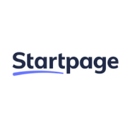Best Search Engines Curated by Github Users
Open Source and Always a Work in Progress (WIP)
This technical assessment provides an evidence-based analysis of search engine services. In contrast to commercial review sites, this framework prioritizes empirical analysis via privacy policies, open source availability, independent audits, and operational transparency.
Our evaluation considers:
1. Code Transparency: Public availability of source code
2. Privacy Policy: Clear and verifiable no-tracking policies
3. Data Collection: What user data is collected and stored
4. Independent Verification: Third party audits and reviews
5. Privacy Architecture: Technical implementation and tracking prevention
| Rank | Service | Open Source | No Tracking | No Logs | Anonymous | Own Index | Audited |
|---|---|---|---|---|---|---|---|
| 1 |  Kagi Kagi |
No | Yes | Yes | No | Yes | No |
| 2 |  Brave Search Brave Search |
No | Yes | Yes | Yes | Yes | No |
| 3 |  SearXNG SearXNG |
Yes | Yes | Yes | Yes | No | No |
| 4 |  DuckDuckGo DuckDuckGo |
No | Yes | Yes | Yes | No | No |
| 5 |  Startpage Startpage |
No | Yes | Yes | Yes | No | Yes |
| 6 |  Mojeek Mojeek |
No | Yes | Yes | Yes | Yes | No |
| 7 |  Qwant Qwant |
No | Yes | Yes | Yes | Yes | No |
| 8 |  Ecosia Ecosia |
No | Yes | No | Yes | No | No |
| 9 |  Bing Bing |
No | No | No | No | Yes | No |
| 10 |  Google Google |
No | No | No | No | Yes | No |
The following search engines represent privacy-focused alternatives. They do not track by design.
These search engines do not track by policy, verified through privacy policies and operational transparency.
 1. Kagi
1. Kagi 2. Brave Search
2. Brave Search 3. SearXNG
3. SearXNG 4. DuckDuckGo
4. DuckDuckGo 5. Startpage
5. Startpage 6. Mojeek
6. Mojeek 7. Qwant
7. Qwant 8. Ecosia
8. Ecosia 9. Bing
9. Bing 10. Google
10. GoogleKagi and Brave Search represent a new generation of privacy-first search engines with independent indexes. Kagi's paid model eliminates advertising conflicts of interest, while Brave's anonymous-by-default approach provides similar benefits without payment requirements.
For users prioritizing open source and self-hosting, SearXNG provides complete transparency and control. DuckDuckGo remains the most popular privacy alternative with 17+ years of operation, while Startpage offers Google results without tracking for users who prefer Google's search quality.
The traditional search giants (Google and Bing) offer superior search quality through extensive data collection but at significant privacy costs. The choice between search quality and privacy continues to narrow as privacy-focused alternatives improve their indexes and algorithms.